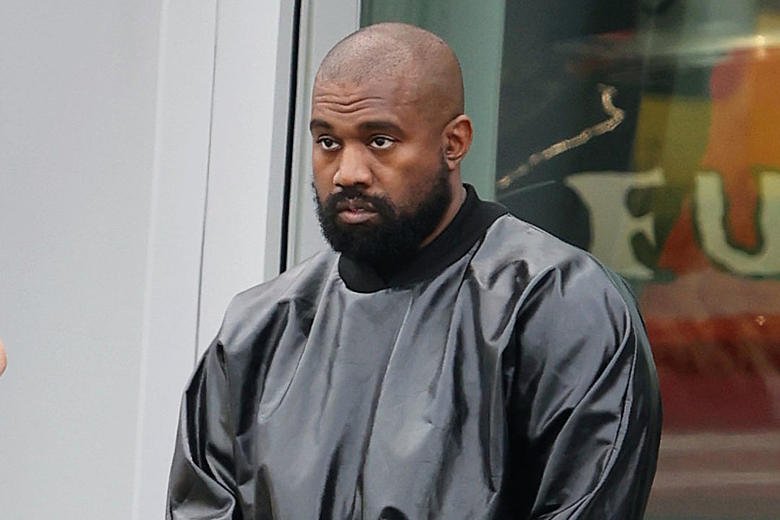Kanye West’s Spiritual Journey in 2019: Sunday Service and Jesus is King

Kanye West's Spiritual Journey in 2019: Sunday Service and Jesus is King
Introduction to Kanye West’s 2019 Journey
In 2019, Kanye West experienced a significant transformation, marked by a deepening of his spirituality and a series of notable public events that captivated audiences worldwide. This period was characterized by the emergence of his Sunday Service, a weekly worship experience that blended gospel music and traditional church elements, attracting both devoted fans and curious onlookers. The Sunday Service not only showcased West’s artistic abilities but also served as a platform for expressing his spiritual beliefs, striking a chord with many who resonated with his rejuvenated faith.
In tandem with the development of Sunday Service, Kanye West released his much-anticipated gospel album, “Jesus is King.” This project represented a pivotal moment in his career, as it marked a deliberate shift from his previous music styles to one deeply rooted in Christian themes. The album’s release was met with widespread media coverage and reactions, illustrating West’s intention to share his spiritual journey through music. It featured a blend of hip-hop, gospel, and choir harmonies, thereby expanding the boundaries of contemporary Christian music. Through “Jesus is King,” Kanye sought not only to redefine his artistic legacy but also to communicate messages of faith and redemption that resonated with his audience.
The events of 2019 highlighted Kanye West’s evolving identity as both an artist and an individual seeking spiritual fulfillment. This period serves as a reflection of his ongoing quest for purpose and understanding, which has led him to embrace a lifestyle that prioritizes faith and community. As West opened up about his beliefs, the world watched closely, intrigued by his journey and the impact it had not only on his music but also on popular culture at large.
The Birth of Sunday Service
Kanye West’s journey into spirituality took a notable turn in 2019 with the inception of his weekly gathering known as Sunday Service. This initiative marked a pivotal moment not only in his personal life but also in the broader cultural landscape. The gathering originated as a response to West’s desire to create a unique space that combined elements of worship and music, showcasing gospel music’s rich heritage. With a firm belief in the transformative power of song and community, West gathered a diverse group of musicians, friends, and worshippers to participate, forming a collective experience that transcended traditional boundaries of faith.
Each Sunday, attendees were treated to a vibrant performance filled with gospel music, uplifting messages, and spiritual revelations. The format of Sunday Service intentionally fostered inclusivity, allowing individuals from various backgrounds and faiths to participate and experience the divine in their own ways. This gathering was not limited to a specific church or denomination; rather, it was designed to welcome everyone seeking a connection through faith and music. By integrating traditional hymns with contemporary tunes, West aimed to make worship accessible and appealing to a younger audience, emphasizing a modern connection to spirituality.
The significance of Sunday Service extended beyond the music itself. It became a cultural phenomenon, attracting public figures and celebrities, thereby bridging the worlds of entertainment and faith. West’s approach encouraged conversations on spirituality, community, and the role of art in worship. This weekly ritual not only elevated gospel music but also served as a reminder of the power of togetherness, offering solace and inspiration to those in attendance. By cultivating an environment where music and spirituality intersected, Kanye West’s Sunday Service emerged as a powerful testament to the collective human experience, resonating deeply with both participants and observers alike.
Musical Influence and Collaborations
Kanye West’s Sunday Service gatherings in 2019 provided a distinctive platform for artistic collaboration, blending gospel, hip-hop, and contemporary music in a manner that revitalized the musical landscape. These events featured a rich tapestry of artists, each bringing their unique influence and creativity to the forefront. Notably, gospel music played a central role, with renowned gospel singers like DMX and Kirk Franklin making appearances, which helped to enrich the spiritual essence of the services.
The diversity in musical styles was evident, with contributions from various genres merging into a cohesive sound. Artists such as Chance the Rapper and Ty Dolla $ign participated, showcasing the seamless integration of hip-hop into a gospel framework. The collaborations highlighted not just the versatility of the artists, but also the inclusive nature of West’s vision, which aimed to transcend genre definitions and unite musicians under a shared spiritual mission.
Additionally, the Sunday Service choir, composed of talented vocalists and musicians, played a pivotal role in enhancing the atmosphere of the gatherings. Their performances lent a powerful gospel influence that resonated with attendees, creating an uplifting environment that supported the themes of spiritual redemption and hope. This unique blend of artistry and spirituality caught the attention of many and sparked conversations in both the music industry and broader cultural circles.
The array of collaborations observed during Sunday Service served as a testament to Kanye West’s artistic ingenuity, as well as a celebration of community through music. The collective contributions of all participating artists not only enriched the services but also underscored the symbolic role that music plays in fostering connection and spiritual awakening. Ultimately, these collaborations were instrumental in shaping the narrative surrounding West’s work in 2019, culminating in the release of his highly anticipated album, “Jesus is King.”
The Evolution of Kanye’s Faith
Kanye West’s relationship with faith and spirituality has undergone significant evolution over the years, particularly in 2019. This transformative journey is closely tied to his personal experiences, which have undeniably influenced both his beliefs and his artistic expressions. In the early months of 2019, Kanye began hosting a series of Sunday Service events, which played a pivotal role in publicly showcasing his spiritual awakening. These gatherings featured gospel music and a community-focused message that resonated with many, blending contemporary culture with traditional Christian themes.
The foundation of Kanye’s faith transformation can be traced back to several key experiences. Among them was the birth of his children, which led him to contemplate his legacy and the values he wished to instill in them. This introspection prompted a deeper exploration of spirituality and a renewed commitment to embracing Christianity. As he struggles with personal challenges, including mental health issues, Kanye’s faith appears to offer him solace and a sense of direction, further solidifying his commitment to a Christian lifestyle.
Throughout 2019, this evolution manifested in his music, culminating in the release of the album “Jesus is King.” This project marks a significant declaration of faith, filled with biblical references and spiritual themes that reflect Kanye’s evolving relationship with Christianity. Through his lyrics and public persona, he seeks to share his spiritual journey, inviting listeners to join him in exploring faith and redemption. This culmination highlights not only Kanye’s personal transformation but also his desire to impact others positively through the message of hope and love found in Christianity.
Jesus is King: Album Announcement and Themes
In the latter half of 2019, Kanye West made significant waves in both the music and spiritual realms with the announcement of his album, Jesus is King. Initially slated for release on September 27, 2019, the album was highly anticipated, setting the stage for West’s evolution as an artist deeply entwined with themes of faith. Over the weeks leading up to the release, the album’s launch experienced several delays, but this only fueled the excitement surrounding its debut. On October 25, 2019, after much speculation and fervor, Jesus is King was officially released. This album marked a pivotal transition for West, moving from secular topics to exploring profound spiritual and religious themes.
The central theme of Jesus is King revolves around faith, emphasizing the importance of Christianity and personal redemption. Throughout the project, West openly grapples with his own struggles, reflecting a journey of spiritual awakening that resonates with listeners seeking solace and connection with God. Tracks such as “Follow God” and “Closed on Sunday” illustrate the artist’s intention to convey messages about devotion and the complexities of faith within a modern context. Moreover, the album showcases West’s desire to inspire his audience to embrace their spiritual journey, fostering a sense of hope and resilience.
Additionally, the album features gospel influences, instrumental arrangements, and a wide array of collaborations that augment its themes of spirituality. These aspects are complemented by West’s candid exploration of personal challenges, including his quest for forgiveness and enlightenment. The culmination of these elements in Jesus is King solidifies Kanye West’s reinvention as not only a musician but as an advocate for faith-based dialogue and collective healing. The work encapsulates a timeless message regarding the power of belief and redemption amidst the turmoil of life’s struggles.
Public Reception and Criticism
Kanye West’s spiritual journey in 2019, prominently marked by his Sunday Service events and the release of the album Jesus is King, elicited a diverse range of reactions from fans, critics, and media outlets. His Sunday Service, which began as an invitation-only gathering, quickly gained public attention as it featured gospel music alongside an atmosphere of worship. The events attracted celebrities and fans alike, drawing both praise and skepticism. Supporters lauded West for his apparent rediscovery of faith and for bringing spirituality into popular music. Conversely, critics questioned the authenticity of his transformation, suggesting that it was more of a publicity stunt than a genuine spiritual awakening.
The album Jesus is King, released in October 2019, received similarly mixed reviews. While some hailed it as a bold statement reflecting West’s newfound commitment to Christianity, others critiqued its musicality and cohesion. Music critics often noted the album’s departure from West’s previous work, emphasizing its heavy reliance on gospel influences. This shift sparked discussions about the implications of his faith on his artistry. Fans reacted passionately, with some expressing emotional connections to the themes of redemption and faith, while others felt alienated by the stark change in content and tone.
Media coverage of both Sunday Service and Jesus is King featured a broad spectrum of perspectives. Some outlets highlighted the cultural significance of West’s spiritual journey, viewing it as a reflection of broader societal trends surrounding faith and celebrity. In contrast, others questioned whether the artist’s actions had been co-opted for commercial gain. This polarized reception underscores the complexities of Kanye West’s public persona and raises essential questions about the intersection of fame, artistry, and spirituality. As his journey continues to unfold, the ongoing discourse encapsulates the evolving relationship between celebrity culture and spiritual expression.
Cultural Impact of Kanye’s Spirituality
Kanye West’s spiritual transformation in 2019, marked by his Sunday Service events and the release of his album “Jesus is King,” wielded significant influence on both his fan base and the broader hip-hop community. This artistic pivot towards themes of faith resonated deeply with many of his followers and initiated conversations regarding spirituality in popular culture. Fans who had long appreciated his musical genius found themselves grappling with this new emphasis on religious themes, which represented a drastic shift from his previous work laden with secular imagery and themes.
The Sunday Service gatherings, characterized by their gospel performances and community-focused atmospheres, elicited a range of responses. While some fans embraced the spiritual messages, finding inspiration and solace in his approach, others expressed confusion or disappointment over what they perceived as a detour from his original musical aesthetic. This dichotomy exemplifies a broader cultural dialogue within the hip-hop genre, as artists increasingly navigate personal faith while appealing to diverse audiences.
Kanye’s endeavors also sparked discussions about the role of faith in art and public life. By openly embracing his spirituality, he challenged the perception of hip-hop as primarily hedonistic or secular, demonstrating that artists could authentically blend their creative expressions with their personal beliefs. This shift influenced fellow musicians, as several began to incorporate spiritual themes and messages into their own works, reflecting a growing trend within the music industry towards introspection and faith-based narratives.
Thus, the cultural ramifications of Kanye West’s spiritual journey not only reshaped his artistic identity but also invigorated discussions about faith, authenticity, and the intersection of spirituality and creativity in contemporary society. His 2019 projects exemplified the potential for music to serve as a conduit for exploring deeper existential themes.
Personal Reflection and Growth
In 2019, Kanye West embarked on a profound personal journey that was intricately intertwined with his artistic expressions and spiritual beliefs. This period marked a notable transformation in his life, characterized by a public declaration of faith and the establishment of the weekly Sunday Service gatherings. The evolution of Kanye’s outlook is vividly illustrated through various interviews, social media posts, and public statements, providing a window into his reflections and growth. As he distanced himself from past controversies, Kanye articulated a desire to embrace a more meaningful and spiritual existence.
Kanye’s social media presence during this time was particularly revealing. He frequently shared thoughts that emphasized faith, redemption, and a quest for deeper understanding. Posts featuring scripture, along with comments on the importance of a relationship with Jesus, indicated a significant shift in priorities. His embrace of Christianity and expressions of vulnerability resonated with fans and followers, creating a new narrative around his persona that focused less on celebrity and more on spiritual authenticity.
Interviews further underscored his commitment to this new path. In conversations with media outlets, Kanye openly discussed the challenges of fame, mental health, and the transformative power of faith. He acknowledged past mistakes and expressed a desire to be a positive influence, utilizing his platform to inspire others on a similar journey. This newfound dedication to his faith was not merely a personal endeavor; it extended to his artistry, culminating in the release of the highly anticipated album “Jesus is King.”
Kanye West’s personal reflections and growth in 2019 reveal an artist navigating the complex intersection of fame, faith, and identity. He sought not only to redefine his legacy but also to foster a sense of community among his followers, united through shared beliefs and experiences. The developments of this year have proven to be a pivotal chapter in Kanye’s ongoing narrative, shaping his future endeavors and artistic pursuits moving forward.
Conclusion: The Legacy of Kanye’s 2019 Spiritual Journey
Kanye West’s spiritual journey in 2019 marked a pivotal moment not only in his life but also within the broader context of the music industry. Throughout the year, he embraced a public expression of faith that considerably transformed his image and artistic direction. The launch of Sunday Service gatherings and the release of the album “Jesus is King” served as significant milestones in this journey, illustrating his desire to merge music with spirituality in a refreshing manner.
The Sunday Service gatherings became a cultural phenomenon, drawing in fans and celebrities alike to a space that combined gospel music and worship. This initiative invited audiences to experience the intersection of joy, spirituality, and community engagement, echoing traditional church elements while bringing contemporary twists. Such events not only resonated with his existing fan base but also attracted new followers who appreciated the focus on faith and inclusivity, fostering a sense of connection among attendees.
“Jesus is King” further solidified this shift, presenting a project deeply rooted in Christian themes and highlighting Kanye’s reflections on his beliefs. The album received mixed reviews, but it undeniably sparked conversations around faith in popular music and challenged artists to explore their spiritual narratives openly. This bold move has likely influenced a wave of musicians who now feel empowered to integrate their beliefs into their artistry, thereby shaping the future of gospel and mainstream music culture.
In the long term, Kanye West’s spiritual exploration in 2019 could lead to a lasting impact on his career, including potential collaborations, new artistic directions, or even the influence on public discussions around the role of spirituality in the entertainment industry. It is apparent that this journey has enriched not only Kanye’s personal narrative but may also continue to redefine the boundaries of music and faith for many artists to come.













Leave a Reply
You must be logged in to post a comment.